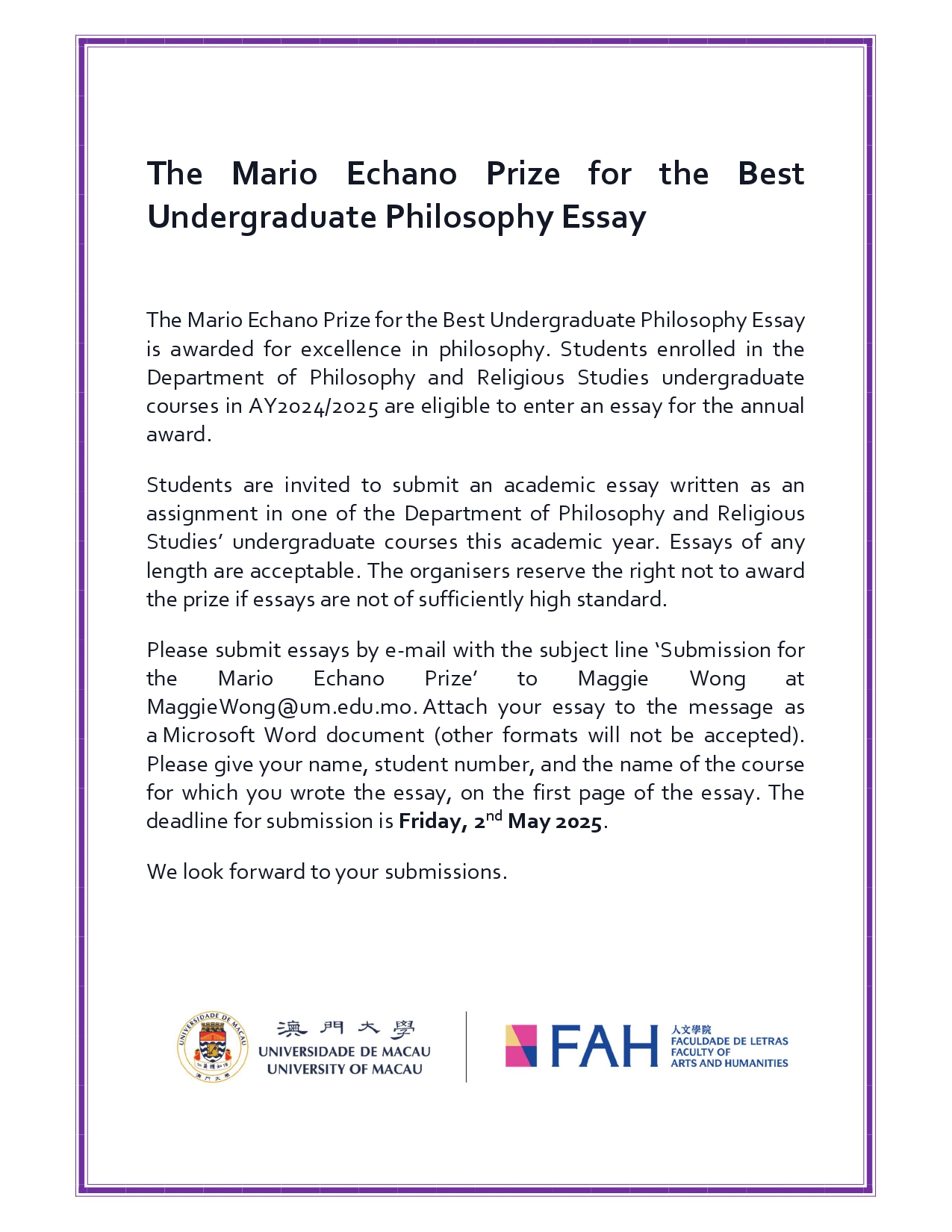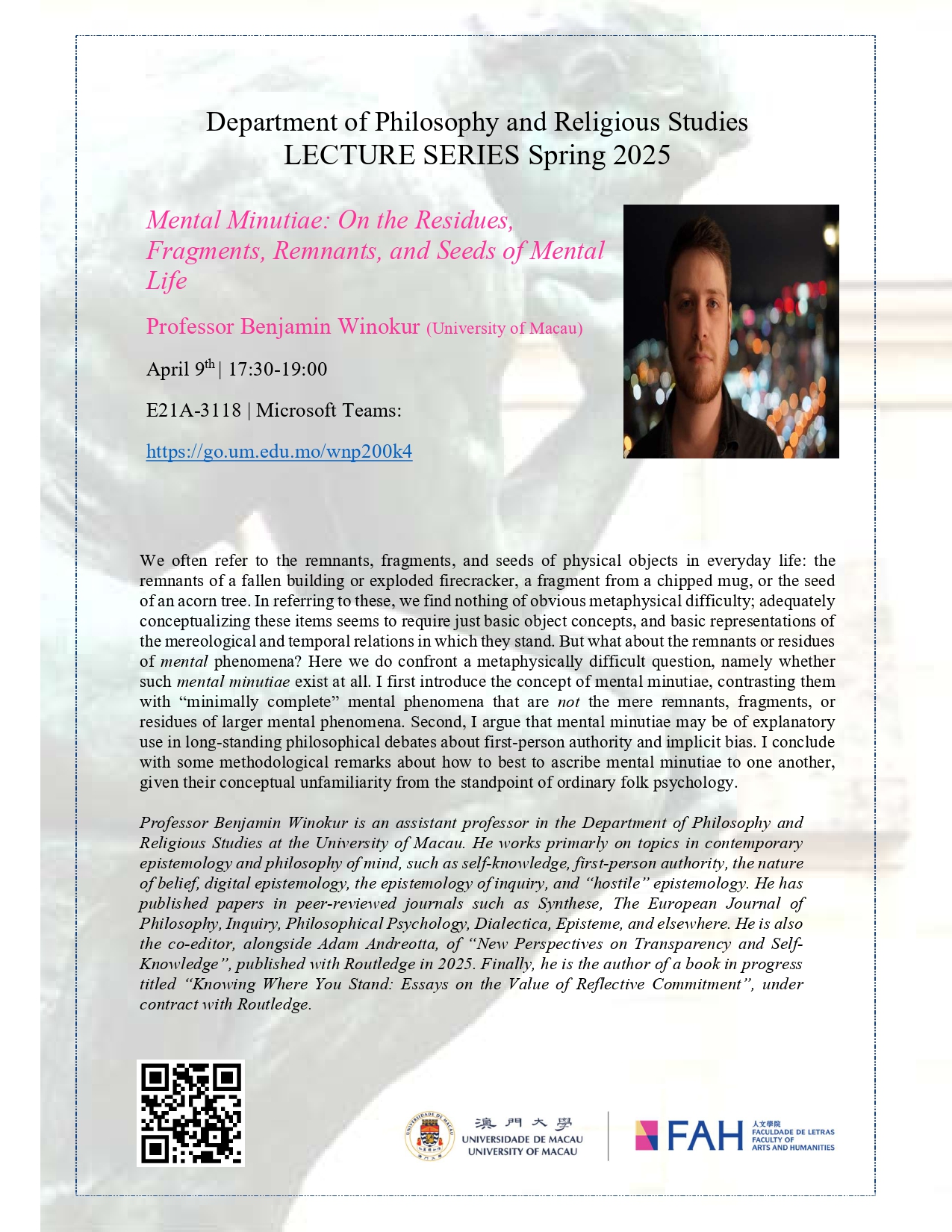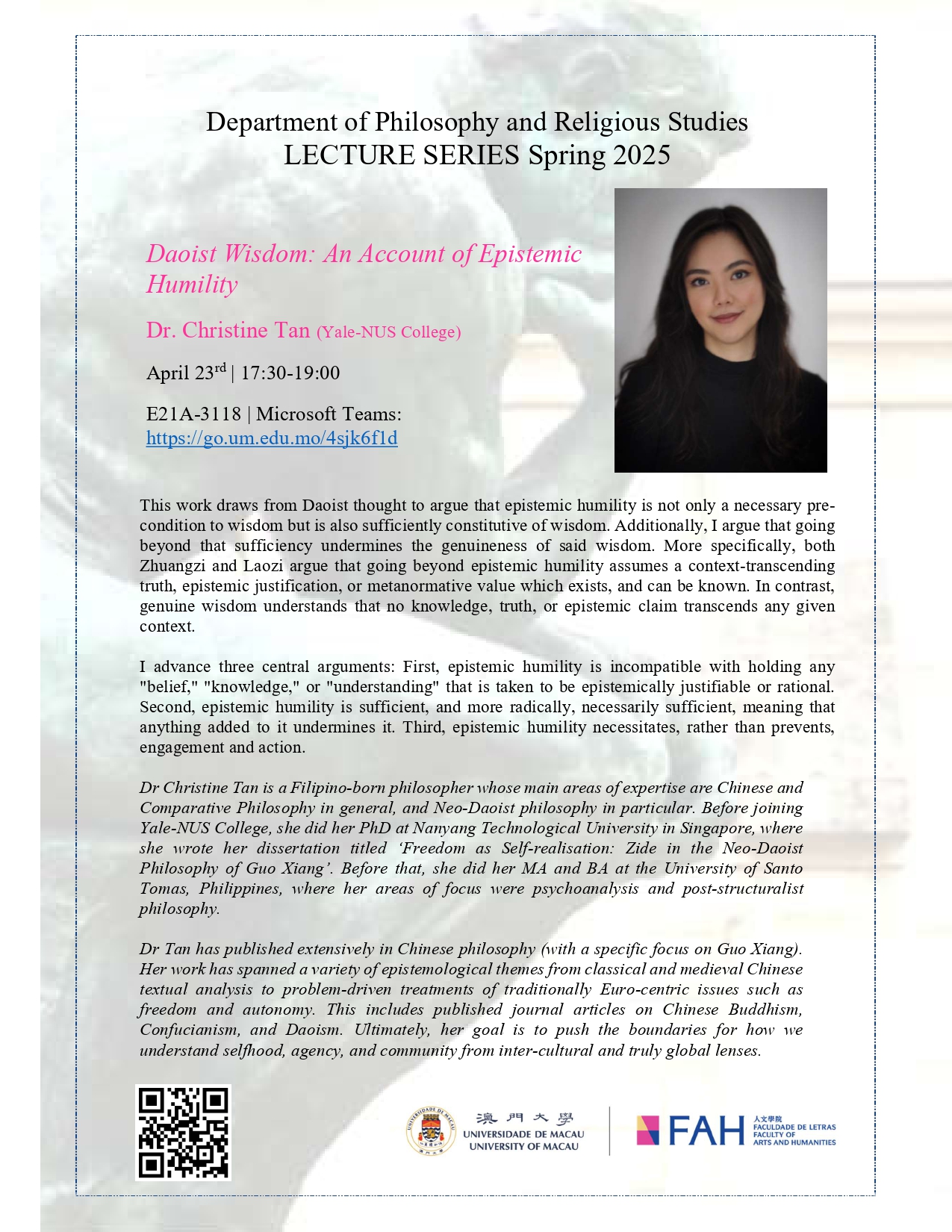Calendar of Events
M Mon
T Tue
W Wed
T Thu
F Fri
S Sat
S Sun
1 event,
FAH/DPHIL: The Mario Echano Prize for the Best Undergraduate Philosophy Essay
The Mario Echano Prize for the Best Undergraduate Philosophy Essay is awarded for excellence in philosophy. Students enrolled in the Department of Philosophy and Religious Studies undergraduate courses are eligible to enter an essay for the annual award. Students are invited to submit an academic essay written as an assignment in one of the Department of Philosophy and Religious Studies’ undergraduate courses this academic year (AY2024/2025). Essays of any length are acceptable. The organisers reserve the right not to award the prize if essays are not of sufficiently high standard. Please submit essays by e-mail with the subject line ‘Submission for the Mario Echano Prize’ to Maggie Wong at MaggieWong@um.edu.mo. Attach your essay to the message as a Microsoft Word document (other […]
2 events,
FAH/DPHIL Lecture Series – “Mental Minutiae: On the Residues, Fragments, Remnants, and Seeds of Mental Life” by Prof. Benjamin Winokur, University of Macau
FAH/DPHIL Lecture Series – “Mental Minutiae: On the Residues, Fragments, Remnants, and Seeds of Mental Life” by Prof. Benjamin Winokur, University of Macau
Microsoft Teams: https://go.um.edu.mo/wnp200k4 Abstract We often refer to the remnants, fragments, and seeds of physical objects in everyday life: the remnants of a fallen building or exploded firecracker, a fragment from a chipped mug, or the seed of an acorn tree. In referring to these, we find nothing of obvious metaphysical difficulty; adequately conceptualizing these items seems to require just basic object concepts, and basic representations of the mereological and temporal relations in which they stand. But what about the remnants or residues of mental phenomena? Here we do confront a metaphysically difficult question, namely whether such mental minutiae exist at all. I first introduce the concept of mental minutiae, contrasting them with “minimally complete” mental phenomena that are […]
2 events,
FAH/DPHIL Lecture Series – “Daoist Wisdom: An Account of Epistemic Humility” by Dr. Christine Tan, Yale-NUS College, Singapore
FAH/DPHIL Lecture Series – “Daoist Wisdom: An Account of Epistemic Humility” by Dr. Christine Tan, Yale-NUS College, Singapore
Microsoft Teams: https://go.um.edu.mo/4sjk6f1d Abstract This work draws from Daoist thought to argue that epistemic humility is not only a necessary pre-condition to wisdom but is also sufficiently constitutive of wisdom. Additionally, I argue that going beyond that sufficiency undermines the genuineness of said wisdom. More specifically, both Zhuangzi and Laozi argue that going beyond epistemic humility assumes a context-transcending truth, epistemic justification, or metanormative value which exists, and can be known. In contrast, genuine wisdom understands that no knowledge, truth, or epistemic claim transcends any given context. I advance three central arguments: First, epistemic humility is incompatible with holding any "belief," "knowledge," or "understanding" that is taken to be epistemically justifiable or rational. Second, epistemic humility is sufficient, and […]





